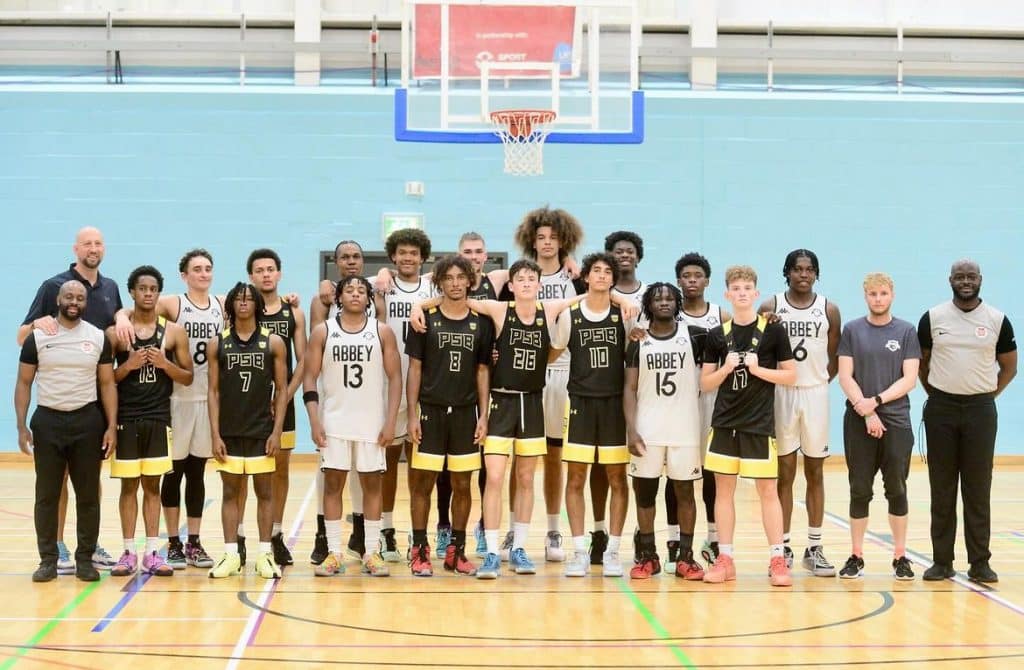
Basketball, especially in its competitive form, known as AAU basketball or club basketball or travel basketball, goes far beyond just being a game. It serves as a robust platform for developing critical life skills, from perseverance and teamwork to coachability and time management. These skills prepare kids not just for success on the court but also for real-world challenges in school, work, and personal relationships.
But not all “AAU basketball” organizations focus on life skills! Many, or maybe even most, focus on the things that, in our humble opinion, don’t matter … like getting the most talented players, winning, social media highlights, traveling all over the country, etc. That’s why at Pro Skills Basketball, through our European-style academy or club basketball model, we are driven to change the culture of American youth basketball to a more healthy and positive culture – one focused on positivity, player development, quality coaching, fun, respect, and ultimately teaching life lessons through the game of basketball.
At PSB, we teach kids skills for basketball, skills for life, and ultimately skills for success.
Now let’s take a look at all of the life skills and lessons competitive basketball teaches kids.
Physical Benefits of Playing Competitive Basketball
AAU basketball requires higher levels of commitment and physical effort, leading to lasting health benefits and physical discipline.
Builds Endurance and Stamina
AAU tournaments often involve playing several games in a short span, sometimes multiple games in a day. This kind of sustained physical activity builds endurance and stamina that benefit kids long term. According to the American Heart Association, this kind of activity helps lower the risk of heart disease, proving that the fitness habits formed in youth sports can lead to a healthier adult life.
Improves Cardiovascular Health
The fast-paced nature of basketball—sprinting, jumping, and quick changes in direction—provides an excellent cardiovascular workout. According to the Centers for Disease Control and Prevention (CDC), children should get at least 60 minutes of physical activity daily, and competitive basketball easily meets this requirement while also being fun and engaging.

Mental Benefits of Competitive Basketball
The mental challenges and pressures of competitive basketball push players to grow intellectually and emotionally.
Reduces Stress and Builds Mental Toughness
Basketball provides a natural outlet for stress and helps players build mental resilience. According to a study by the Mayo Clinic, physical activity like basketball releases endorphins that reduce stress and improve mood. Handling high-pressure game situations also helps players manage stress effectively—a skill they will need in stressful life or work situations later on.
Develops Teamwork and Leadership Skills
Basketball teaches kids how to work as a team to achieve a common goal. Whether passing to an open teammate or executing a play, AAU players learn to trust their teammates and recognize that individual success is tied to the team’s success. This skill translates directly to the workplace, where teamwork and collaboration are key to achieving organizational goals. Many successful executives, including LinkedIn CEO Jeff Weiner, credit their leadership and teamwork skills to playing competitive sports like basketball.
Social Benefits of Competitive Basketball
Playing basketball at a competitive level provides kids with essential social skills that will help them in relationships and professional environments.
Enhances Communication and Social Connections
Basketball forces players to communicate clearly and efficiently. In games, effective communication could be the difference between winning and losing. The need to relay messages quickly and clearly helps kids develop both verbal and non-verbal communication skills. According to Harvard Business Review, these communication skills are critical in the professional world, where successful teams must be able to communicate effectively under pressure.
Teaches Coachability and Working with Authority
One of the most valuable lessons competitive basketball teaches is how to be coachable—how to accept feedback, adjust based on it, and continually improve. This translates directly to the workplace, where being coachable is analogous to being able to work with a boss or supervisor. Accepting constructive criticism from a coach in basketball teaches kids to receive and apply feedback from a boss in a professional setting. According to Forbes, coachability is one of the top traits employers look for when hiring, as it indicates a willingness to learn and adapt.
Fosters Friendships and Networking Skills
AAU basketball often involves traveling and competing against different teams across regions, offering players a chance to meet new people and forge lasting friendships. This exposure to diverse backgrounds fosters empathy and enhances networking skills, which are valuable in both personal and professional realms. Studies from Psychology Today show that the social bonds formed through sports contribute to better emotional health and well-being.
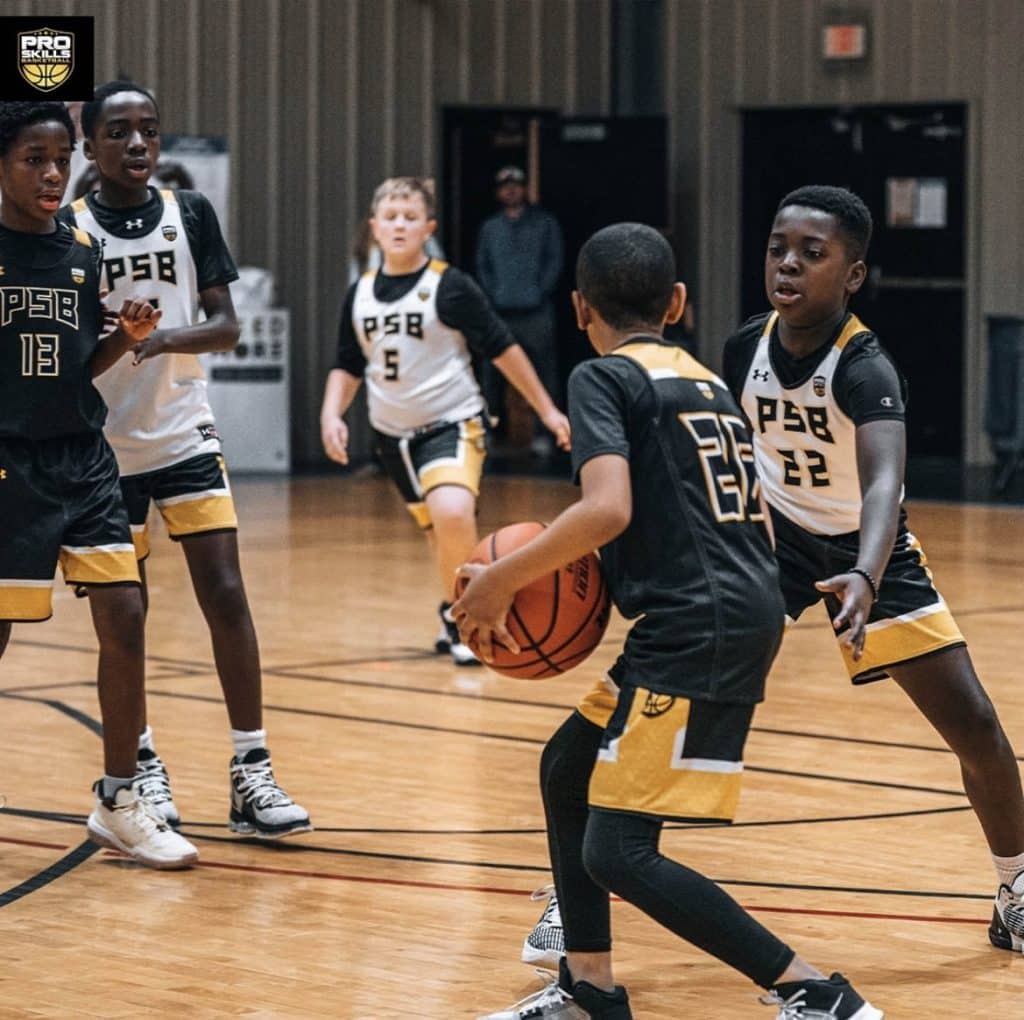
Life Skills Learned Through AAU Basketball
Competitive basketball isn’t just about scoring points or winning championships—it builds essential life skills that players carry into adulthood.
Perseverance and Determination
AAU basketball can be highly competitive, requiring players to push through tough losses, long practices, and injuries. These experiences teach kids perseverance—the ability to keep going despite setbacks. This is the same grit they’ll need when facing challenges in school, relationships, or their future careers. Angela Duckworth’s research on grit demonstrates how perseverance is a key factor in achieving long-term success.
Teaches Good Teammateship, Translates to Working with Co-Workers
In basketball, teamwork is essential, and the lessons learned on the court translate directly into the workplace. Being a good teammate means understanding and respecting the roles of others, offering support, and sharing responsibility for both successes and failures. These qualities are crucial in a collaborative work environment. A study by Gallup found that strong teamwork leads to higher levels of employee engagement and productivity.
Resilience and Adaptability
From facing tough opponents to adapting to new roles or game plans, AAU basketball builds resilience and adaptability in kids. The sport teaches them to handle unexpected challenges—whether it’s dealing with a sudden injury or adjusting to a coach’s new strategy. These are the same skills needed to navigate the uncertainties of life, whether it’s adapting to a new job or facing personal challenges.
Time Management and Prioritization
Competitive basketball requires players to juggle school, social lives, and intense practice schedules. Players quickly learn how to manage their time, set priorities, and create a balanced life. According to the National Association of Colleges and Employers, time management is one of the top skills employers seek, and kids who play basketball have an early start in mastering this.
Basketball as a Lifelong Sport
Basketball is not only a youth sport; it is a lifelong activity. Unlike sports that may be difficult to play as you age, basketball can be adapted and played well into middle and old age. Pickup basketball games are popular in parks, gyms, and community centers, allowing people to stay physically active, socially connected, and mentally sharp. The National Institute on Aging highlights how staying active through sports like basketball helps maintain health and mobility as people age.
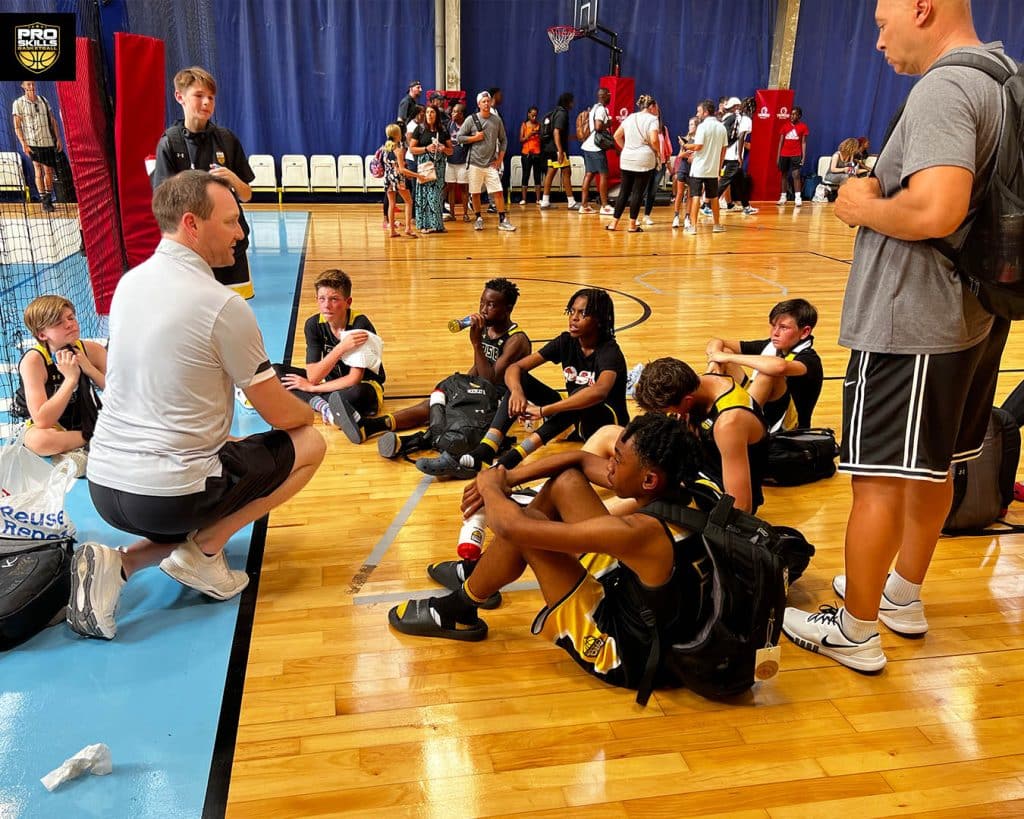
Overcoming Challenges in Basketball and Life
AAU basketball teaches valuable lessons in dealing with failure, embracing growth, and overcoming adversity.
Learning from Mistakes and Failures
Every player has missed a crucial shot or made a bad decision during a game. These experiences teach players how to handle failure gracefully and use it as a learning opportunity. A growth mindset, as defined by psychologist Carol Dweck, allows kids to view mistakes not as setbacks but as chances for improvement—an essential mindset for success in both personal and professional life.
Conclusion
Competitive basketball, especially AAU basketball, is much more than a game. It offers a unique opportunity for kids to develop critical life skills like coachability, teamwork, resilience, and time management, all of which are essential for success both on and off the court. And beyond the competitive years, basketball remains a sport for life, providing physical, mental, and social benefits that can last well into adulthood.
Want to learn more about Pro Skills Basketball Club Teams? Check us out here!
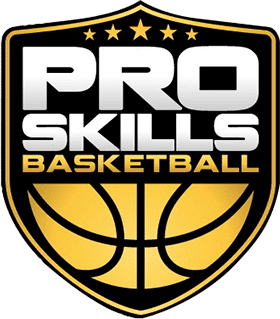
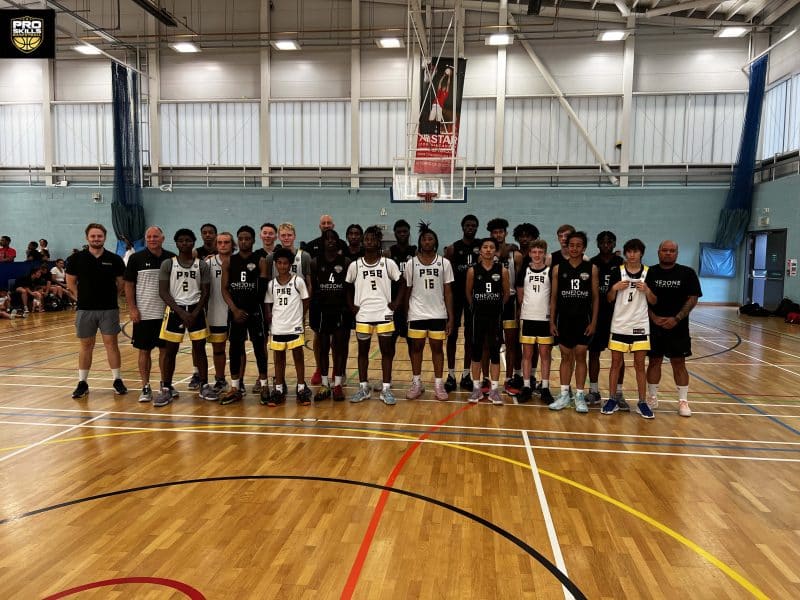
 3 COLLEGE BASKETBALL RECRUITING TIPS FOR PLAYERS & PARENTS
3 COLLEGE BASKETBALL RECRUITING TIPS FOR PLAYERS & PARENTS »
»